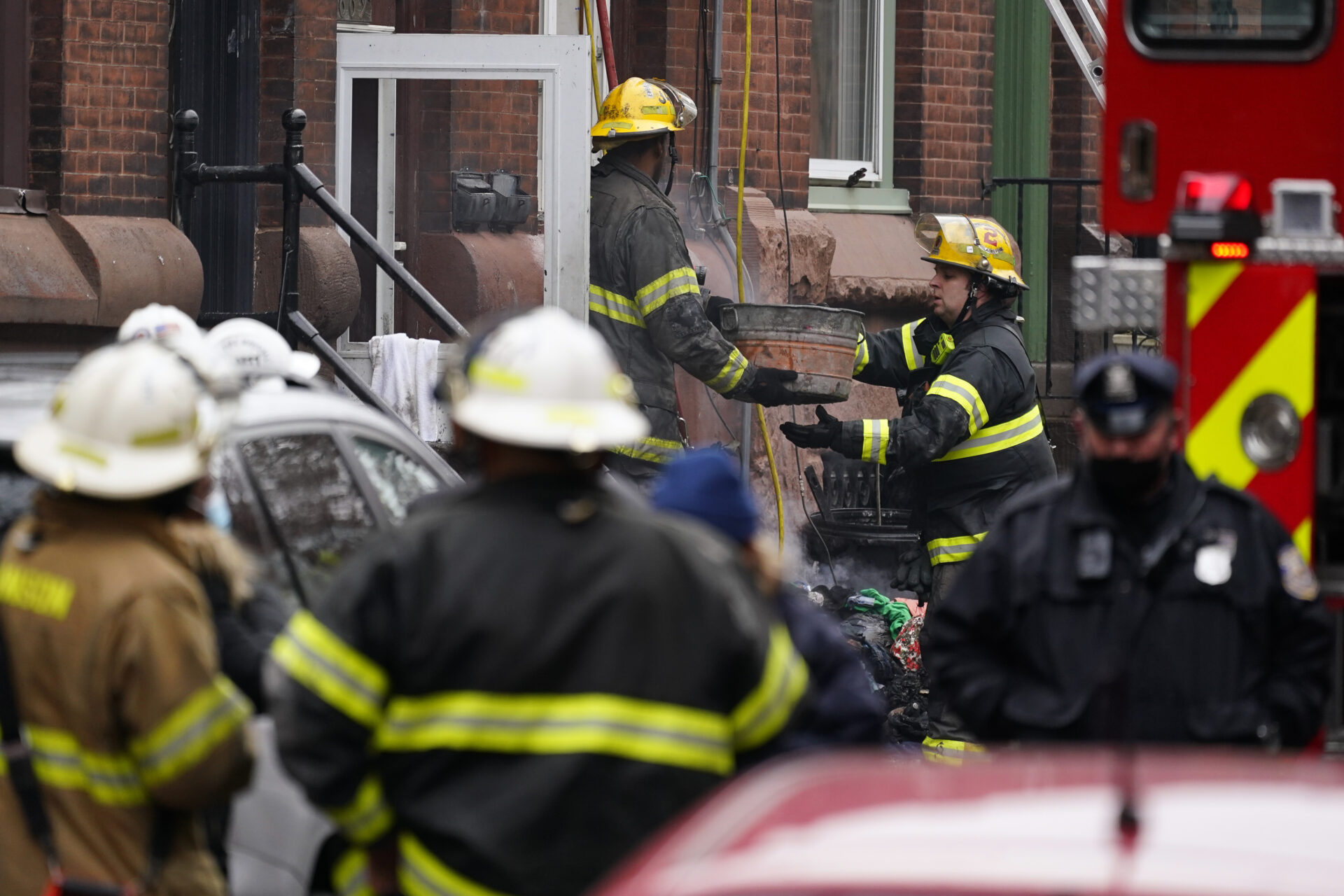
Utahns can take simple steps to prevent fires in the home, which are mostly caused by human error and sparked by candles, electrical malfunctions and thermal runaway in lithium-ion batteries.
On Jan. 9 in New York, 17 people were killed in a high-rise apartment building because of a malfunctioning electric space heater. Smoke spread up through the building aided by open safety doors. On Jan. 5, a Christmas tree fire in Philadelphia killed 12 relatives in a row house duplex — where none of the six smoke alarms in the unit were working.
“There’s a whole bunch of different reasons why fires start,” said Lynn Schofield, fire marshal at Provo Fire & Rescue.
In Provo, Schofield said the most recent apartment fires have been because of runaway phone batteries. Lithium-ion batteries power cellphones, and if they are overcharged, they’ll go into lithium runaway, Schofield said. These batteries can then explode and catch fire.
“I would certainly never leave a lithium battery plugged in when I’m not at the home,” Schofield said. “You just have to be really careful with those.”
E-cigarettes, hoverboards and electric scooters also have lithium batteries. “We’re finding lithium batteries in lots and lots of electronics now,” Schofield said.
He added that it’s best to use the factory-original charger when it comes to these products. Aftermarket chargers don’t always have the right charging voltage and can increase risk of lithium runaway and fires.
Cooking fires are probably the most common in the home, Schofield said, emphasizing that cooking should not be left unattended. “If your stove’s on, somebody needs to be in the kitchen.”
Schofield also said he is “not a big fan of candles,” which are one of the most common causes of fires in the home. But he advised people who use them to make sure they’re in a container or on a surface where there isn’t anything combustible around them — or anything that could fall into them.
Schofield explained how in one apartment fire a couple of years ago, the occupant had drawings their kids had made taped above a dresser with half a dozen candles on it. When the drawings fell, the bedroom caught on fire.
“So, you know, just be very cautious in your use of candles and open flame,” he said.
Space heaters, the cause of fire in New York’s tragedy, can be dangerous when they get too close to combustible materials. Older space heaters don’t always have thermocouples like newer ones do. These thermocouples shut the heater off if it gets too hot, Schofield explained.
“There are very good space heaters that you can use, you just have to be careful with them,” Schofield said. “And certainly make sure that they’re clear of combustible materials around them.”
Ensuring smoke alarms work is also key in preventing fires. According to Schofield, landlords are responsible to provide smoke alarms in sleeping areas and on each level of a home or apartment. It’s the tenant’s responsibility to make sure the alarms function.
The responsibility for landlords to provide smoke detectors is outlined in BYU’s off-campus housing handbook, which shares standards university-contracted facilities must maintain.
According to the handbook, student rental facilities need to meet local city fire codes, avoid storing combustibles within 30 inches of heating units and provide smoke detectors in sleeping areas and each story within a dwelling unit. Buildings need to have fire-resistive construction and be provided with appropriate fire-extinguishing systems or equipment. Flammable liquids are not allowed unless they are in sealed containers, and they cannot have more than a one-gallon capacity.
Management must also take action to solve certain “critical repairs” in a unit within a specified time frame, the handbook says. These include immediately attending to exposed parts of an electrical system that could produce electrical shock or fire and addressing inoperable or missing smoke detectors or fire sprinkler systems within 24 hours.
King Henry Apartments is an off-campus contracted housing complex in Provo. According to an office work who did not identify himself, the complex requires maintenance checks of furnaces, smoke detectors in each room and has a no-candle policy for tenants.
While most fires are caused by human error, Schofield said Provo residents seem to operate fairly safely, emphasizing continued vigilance.




